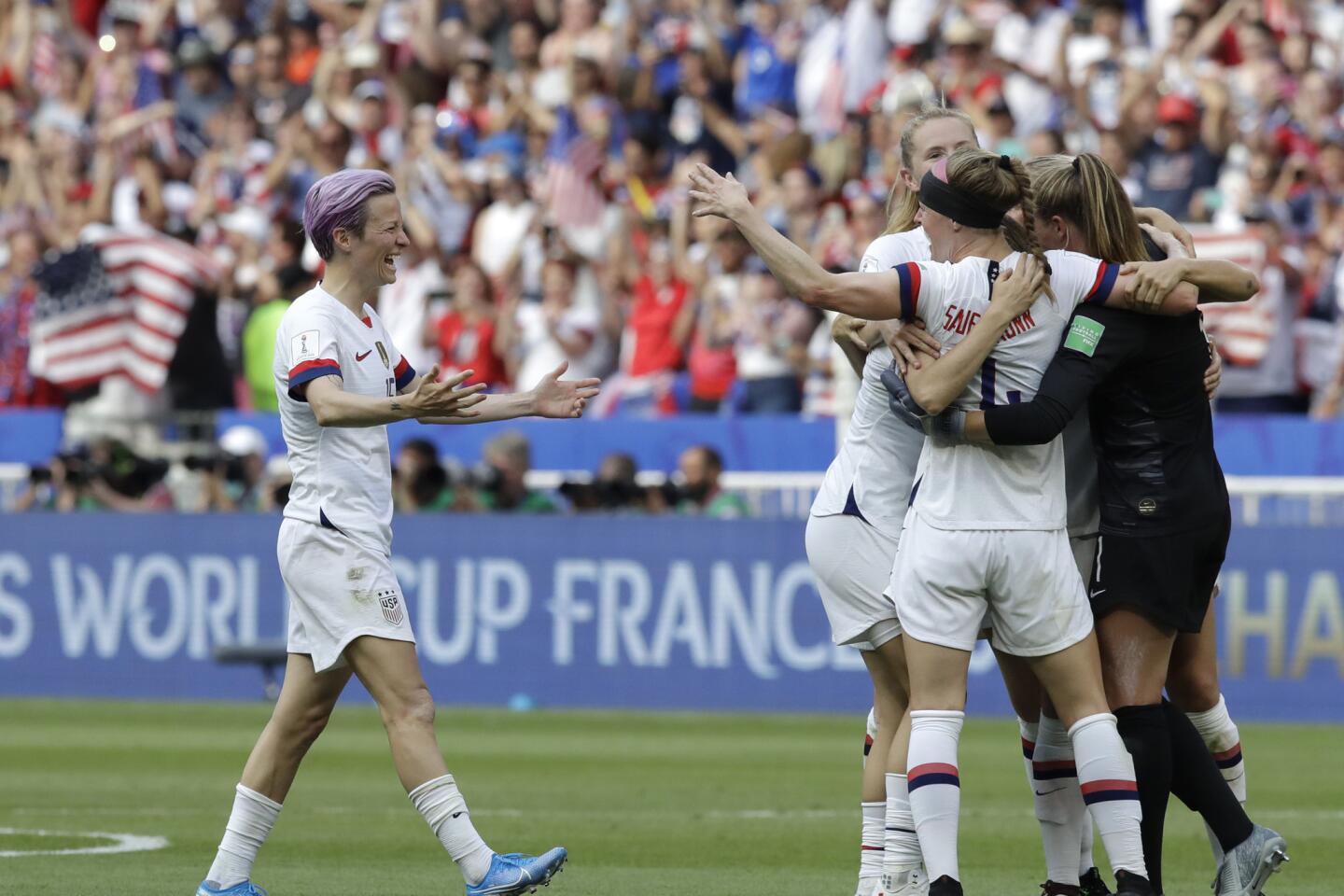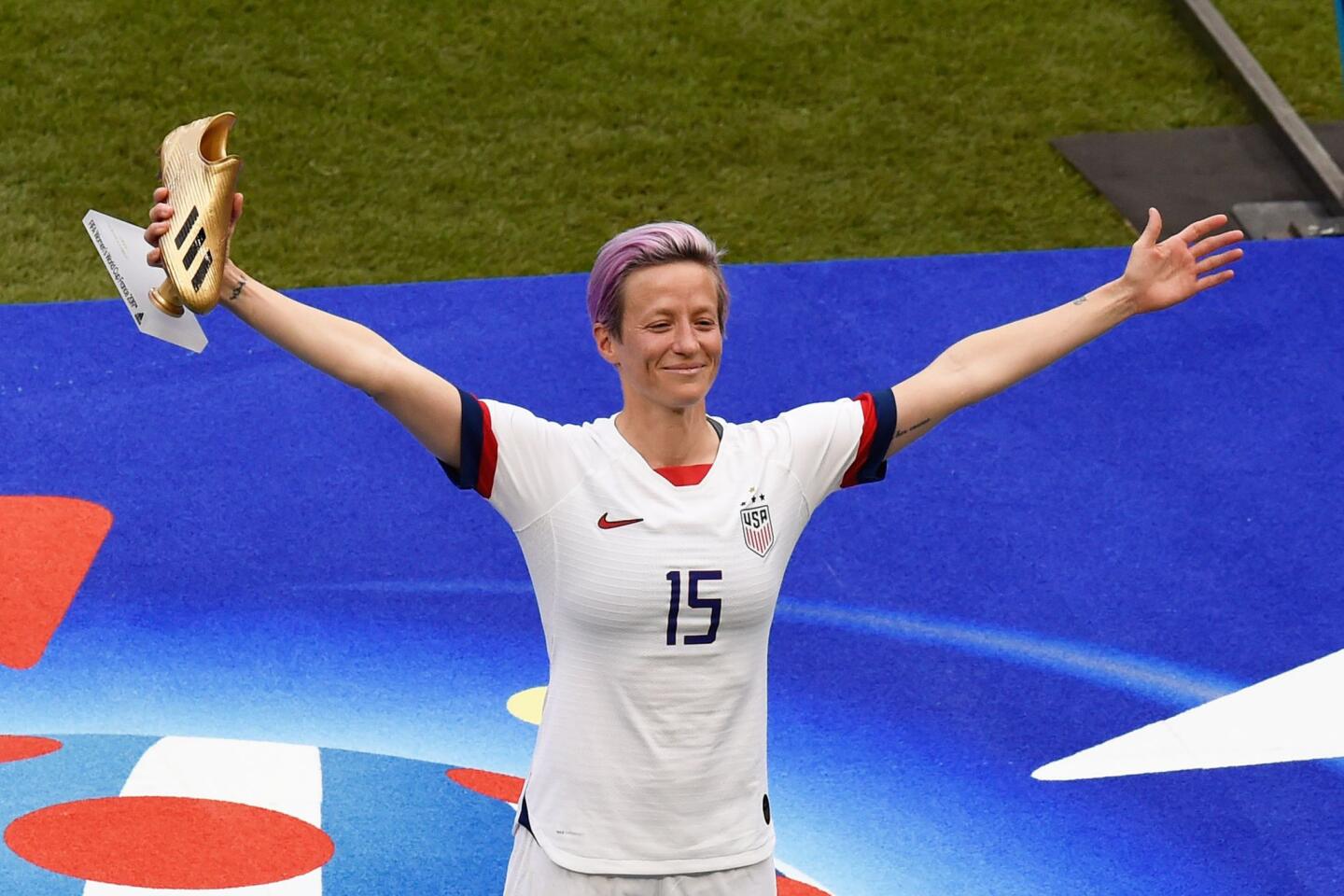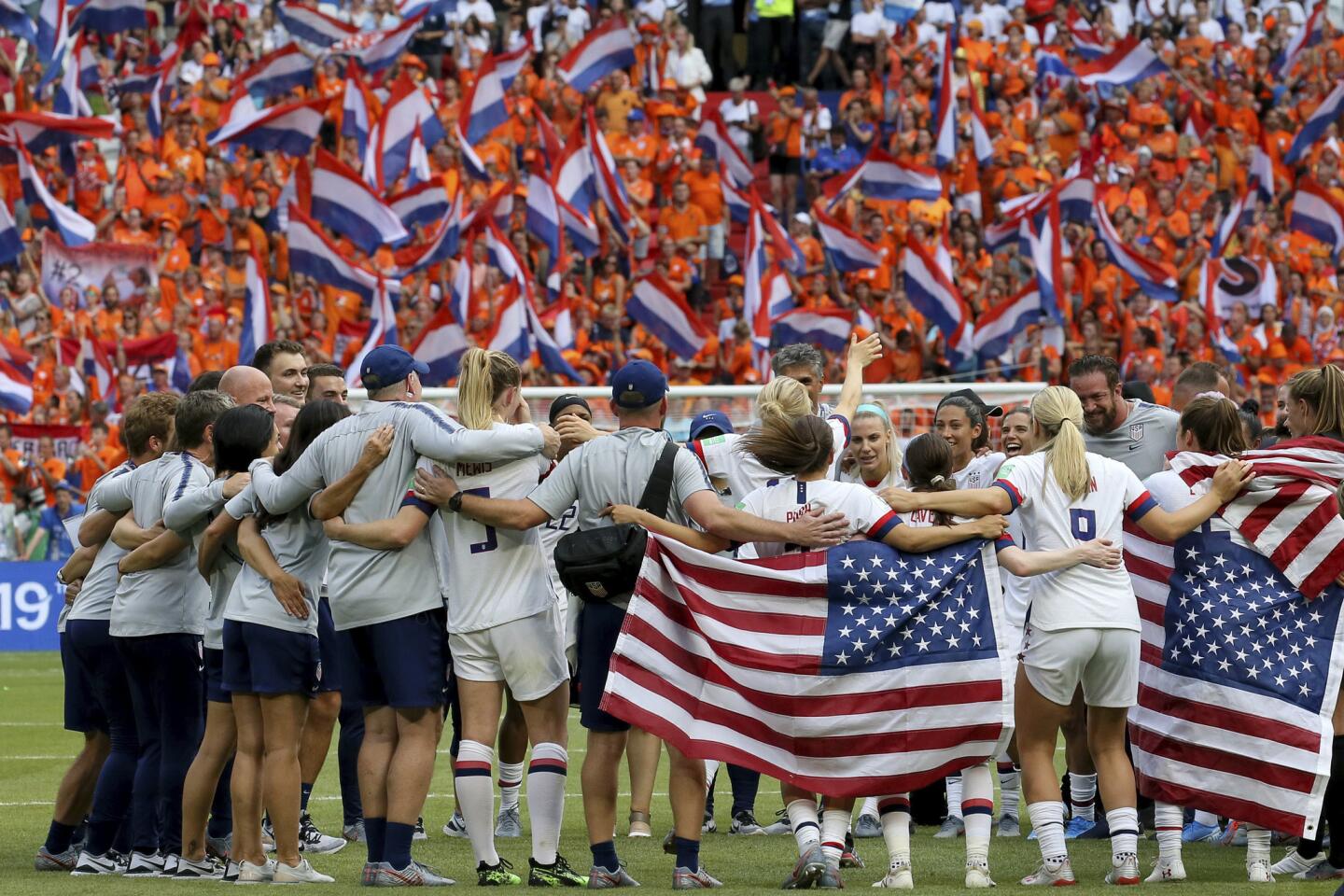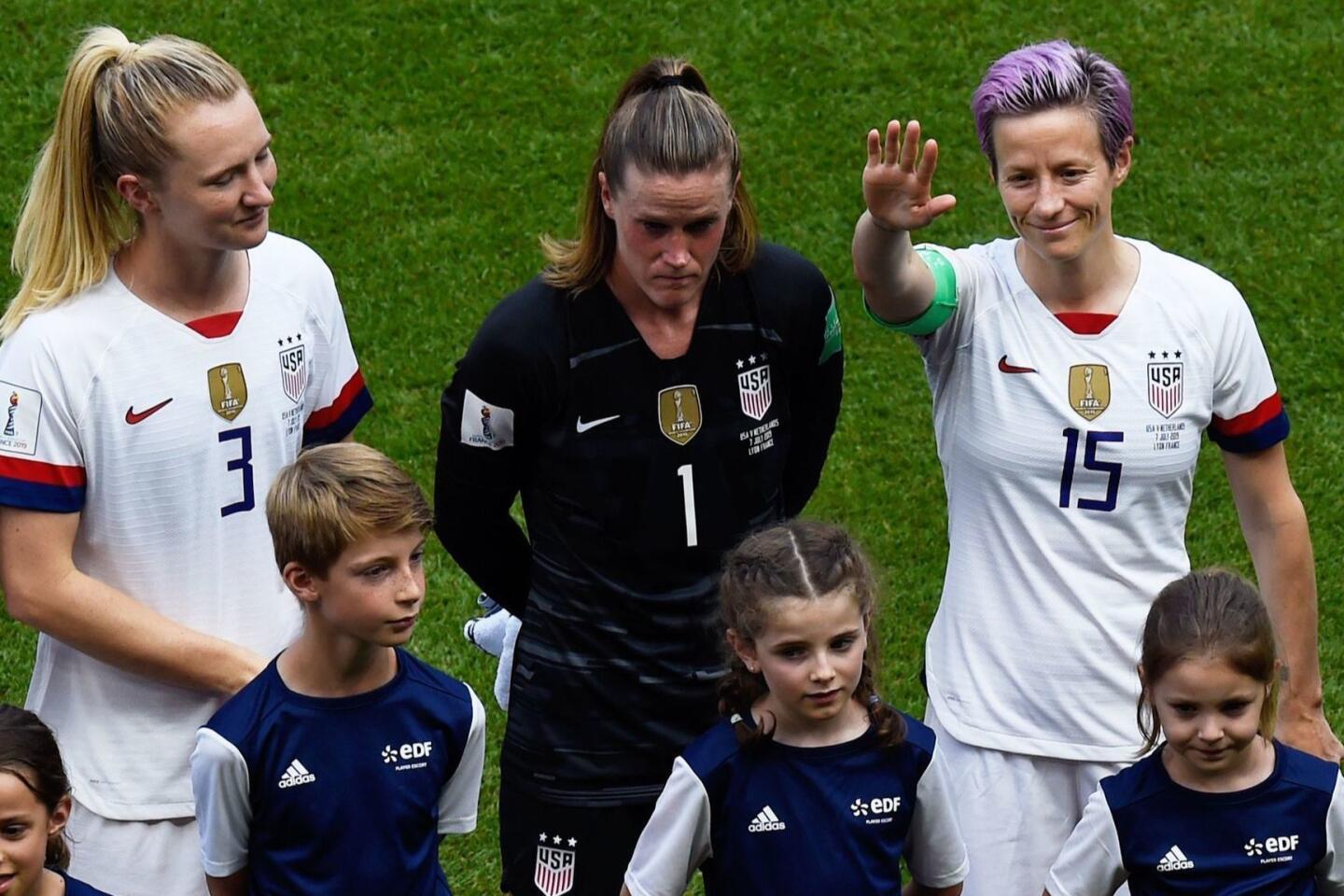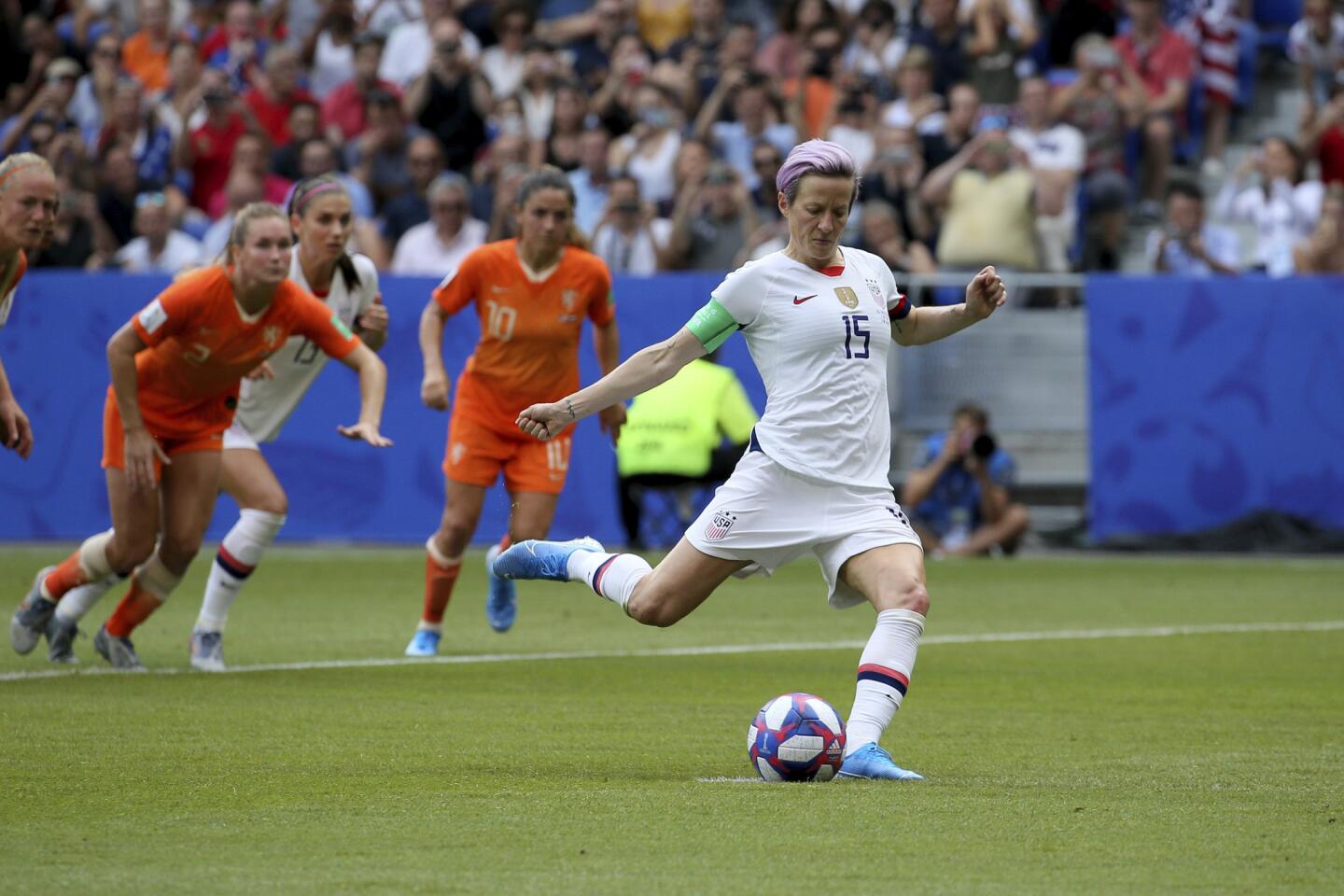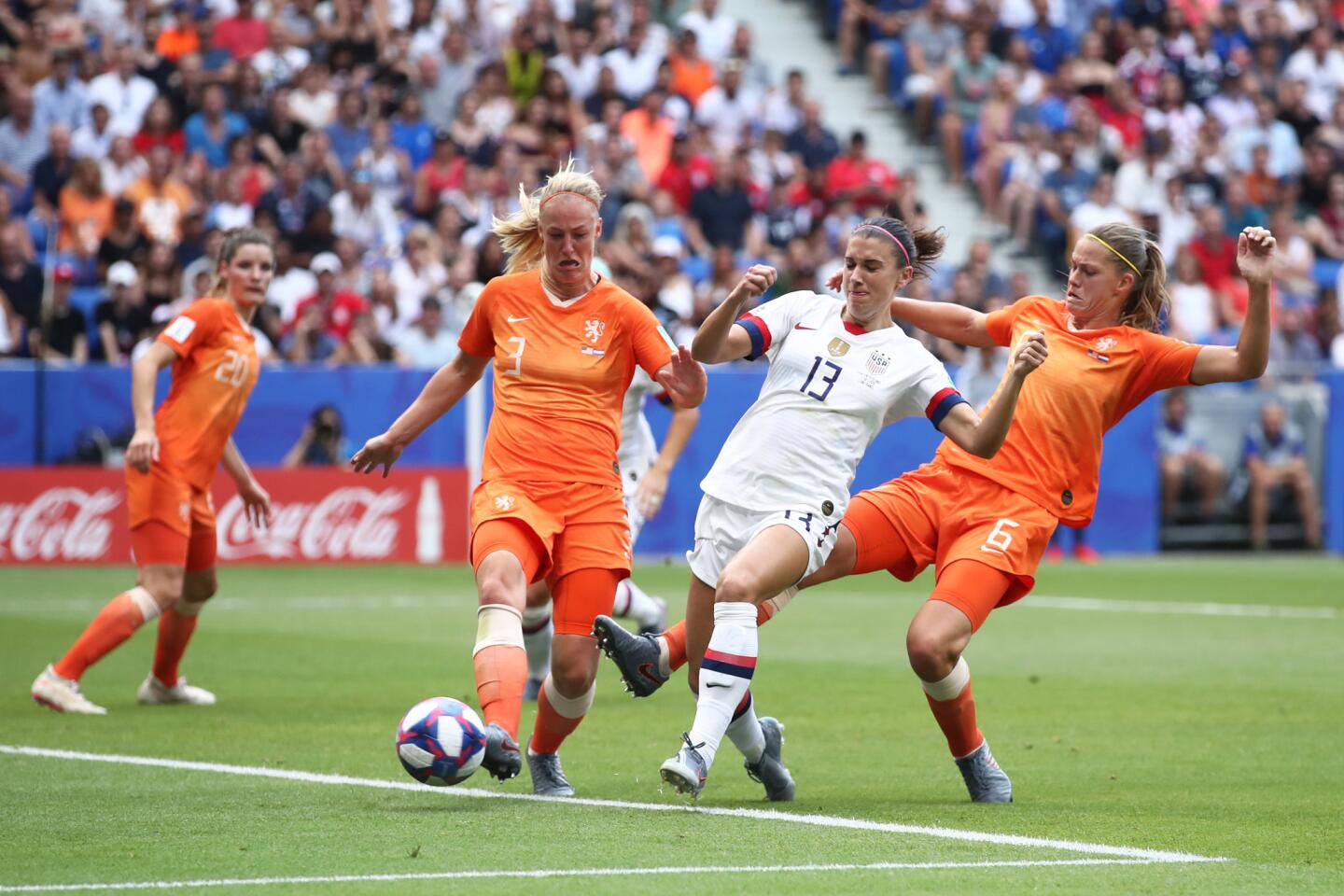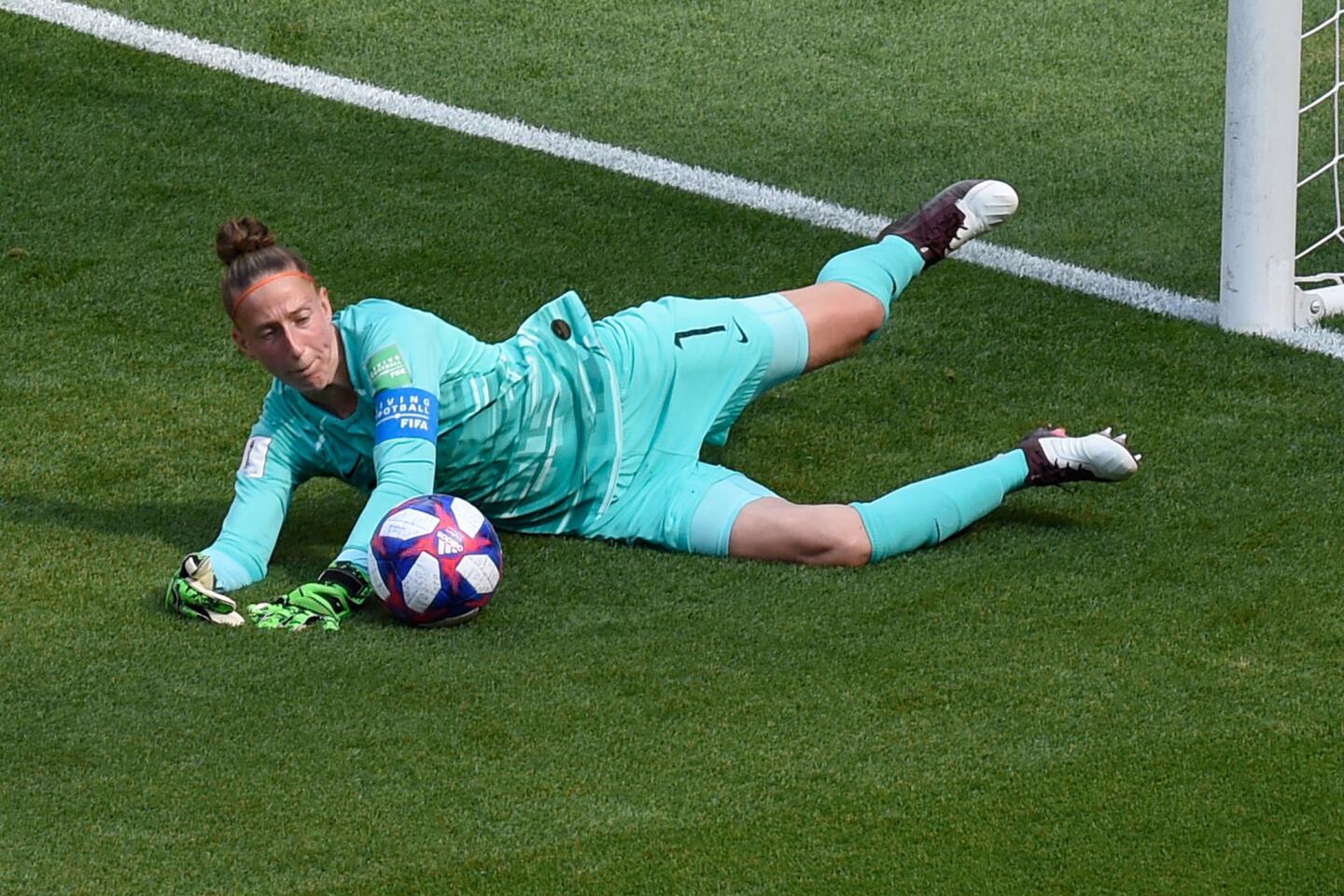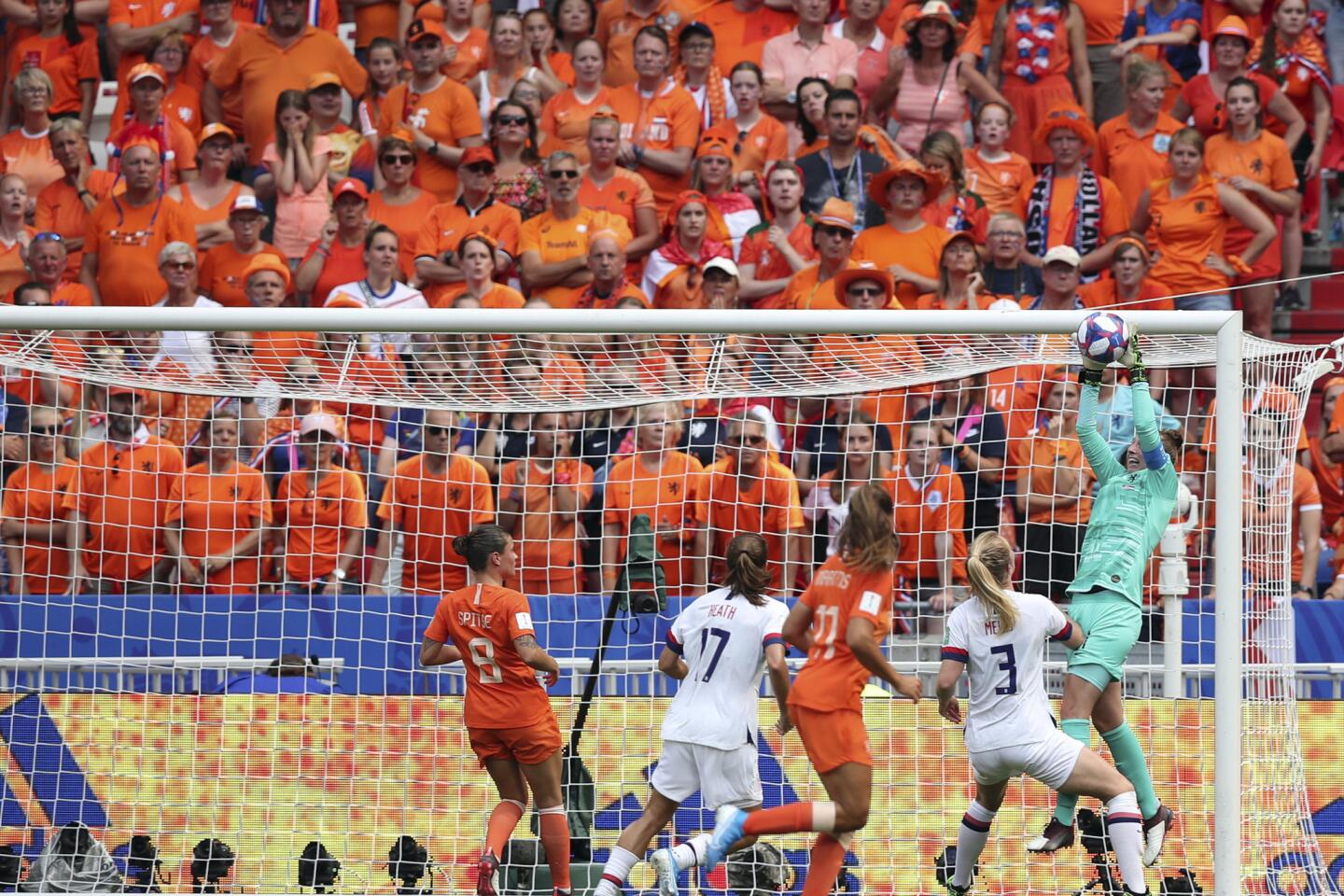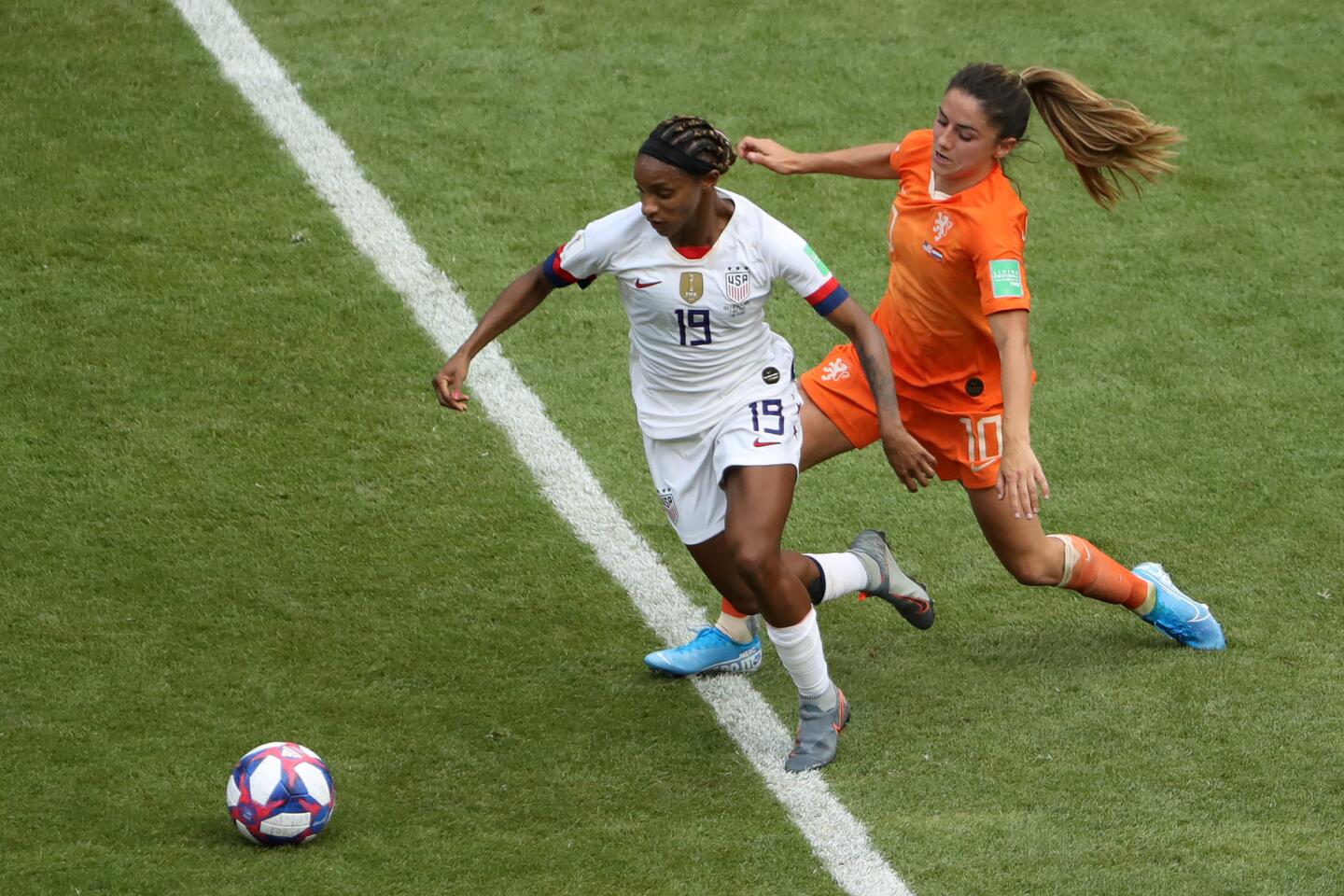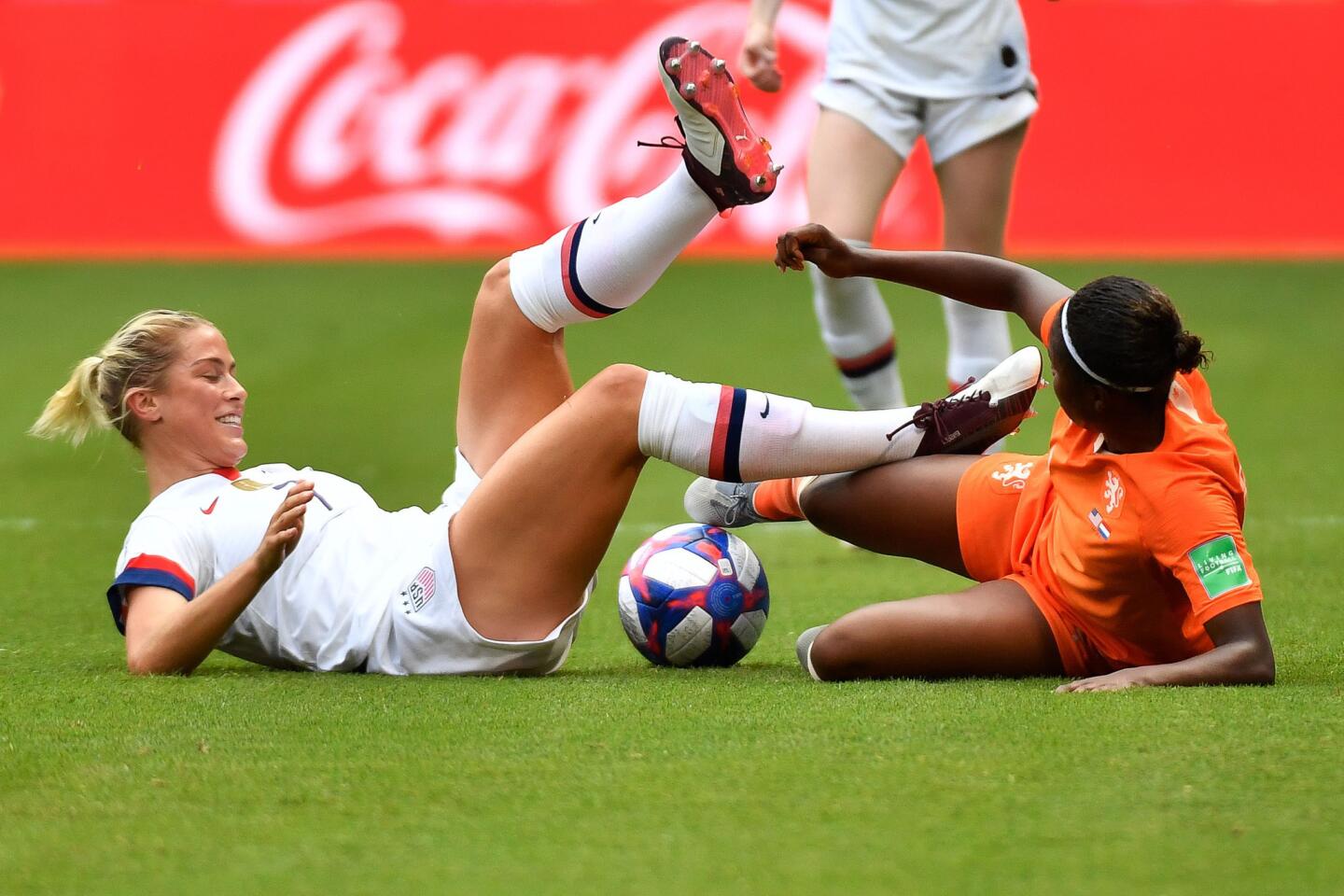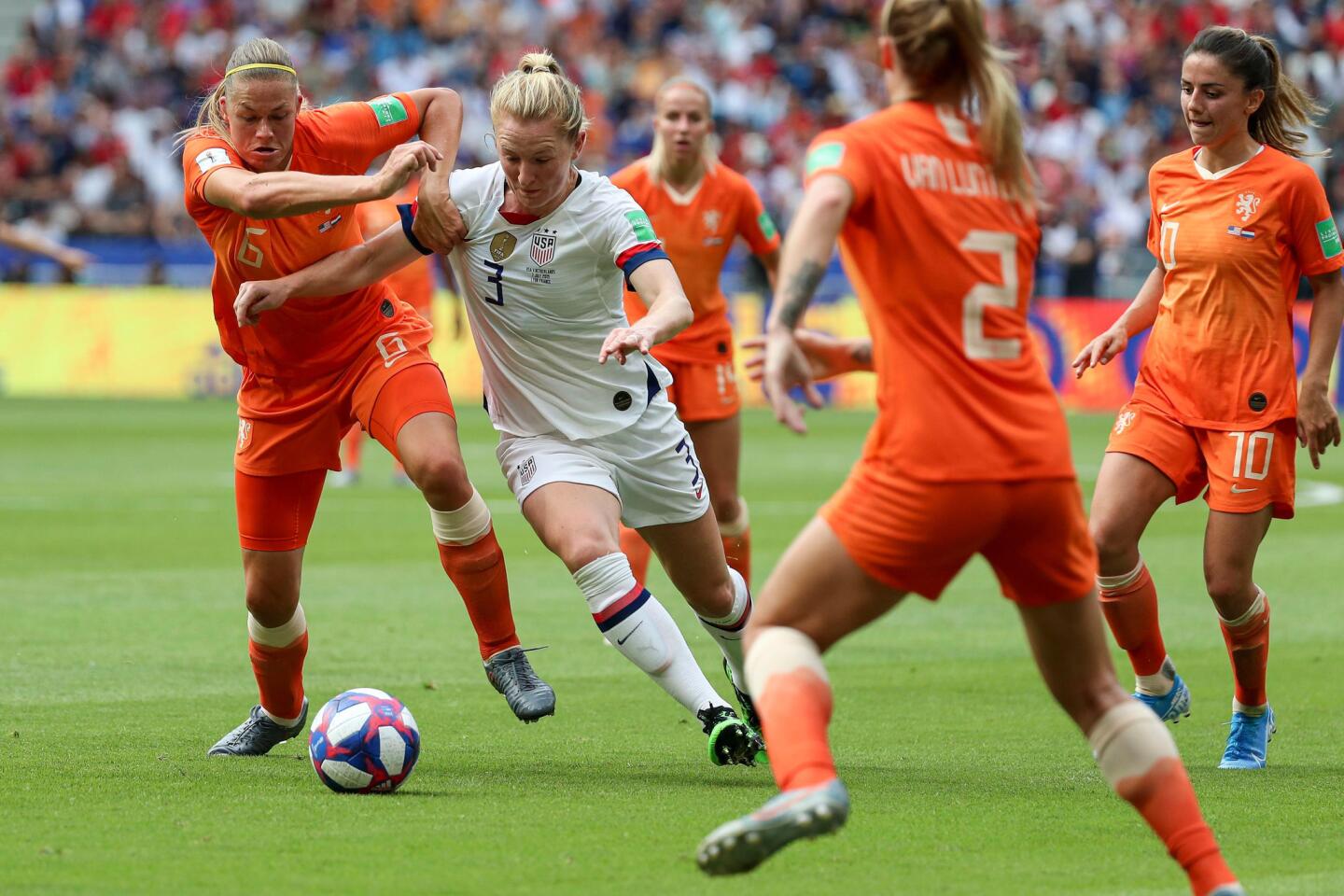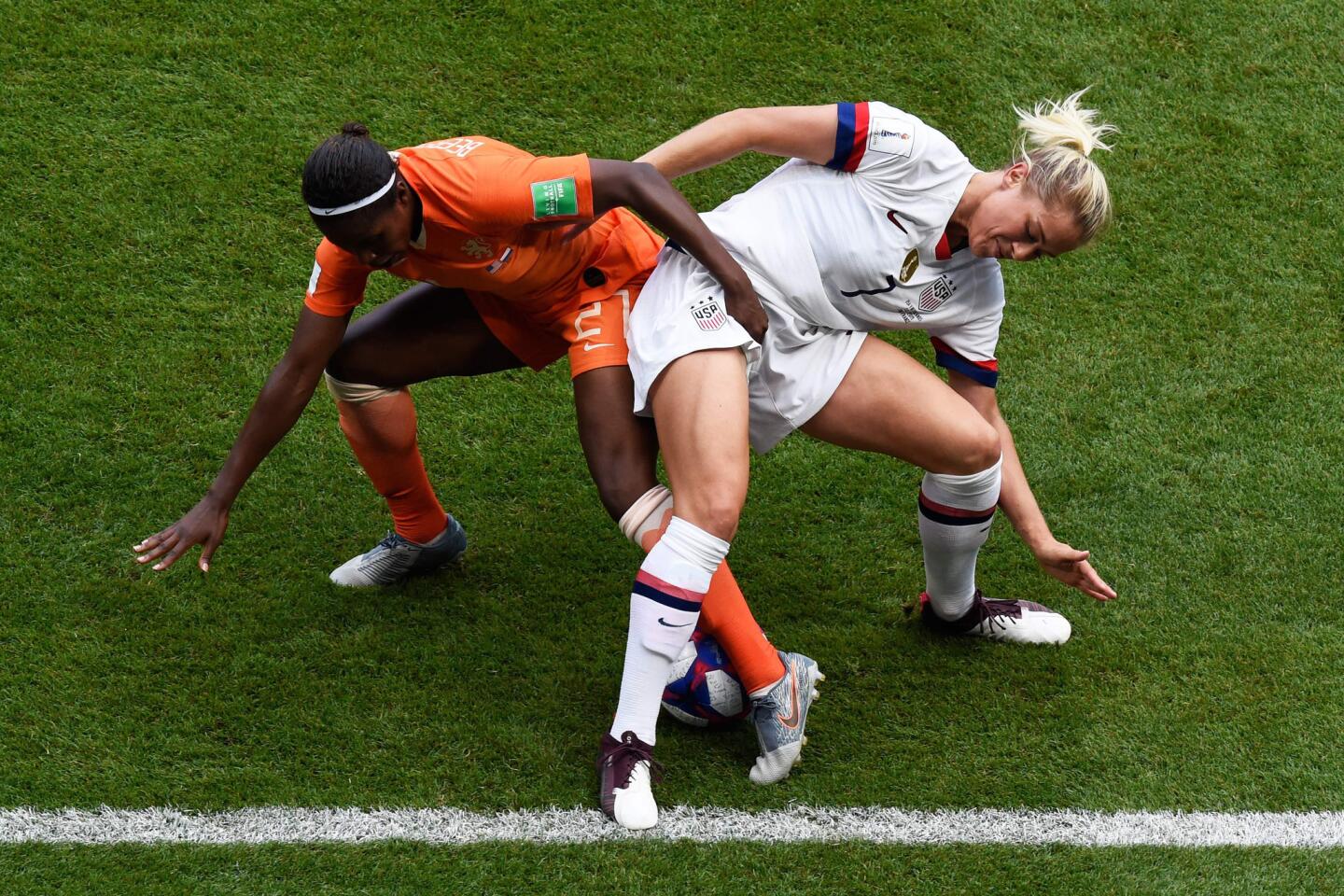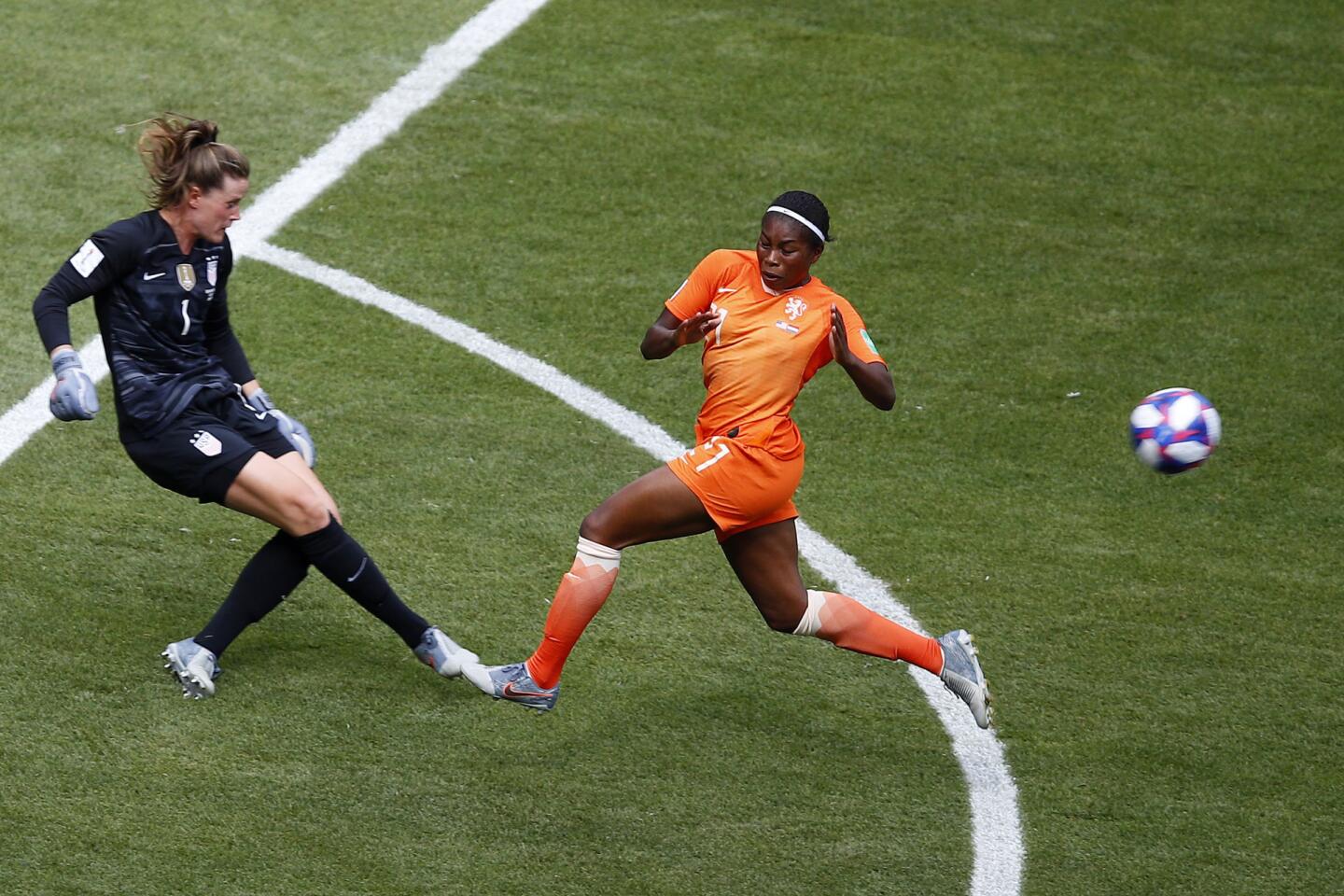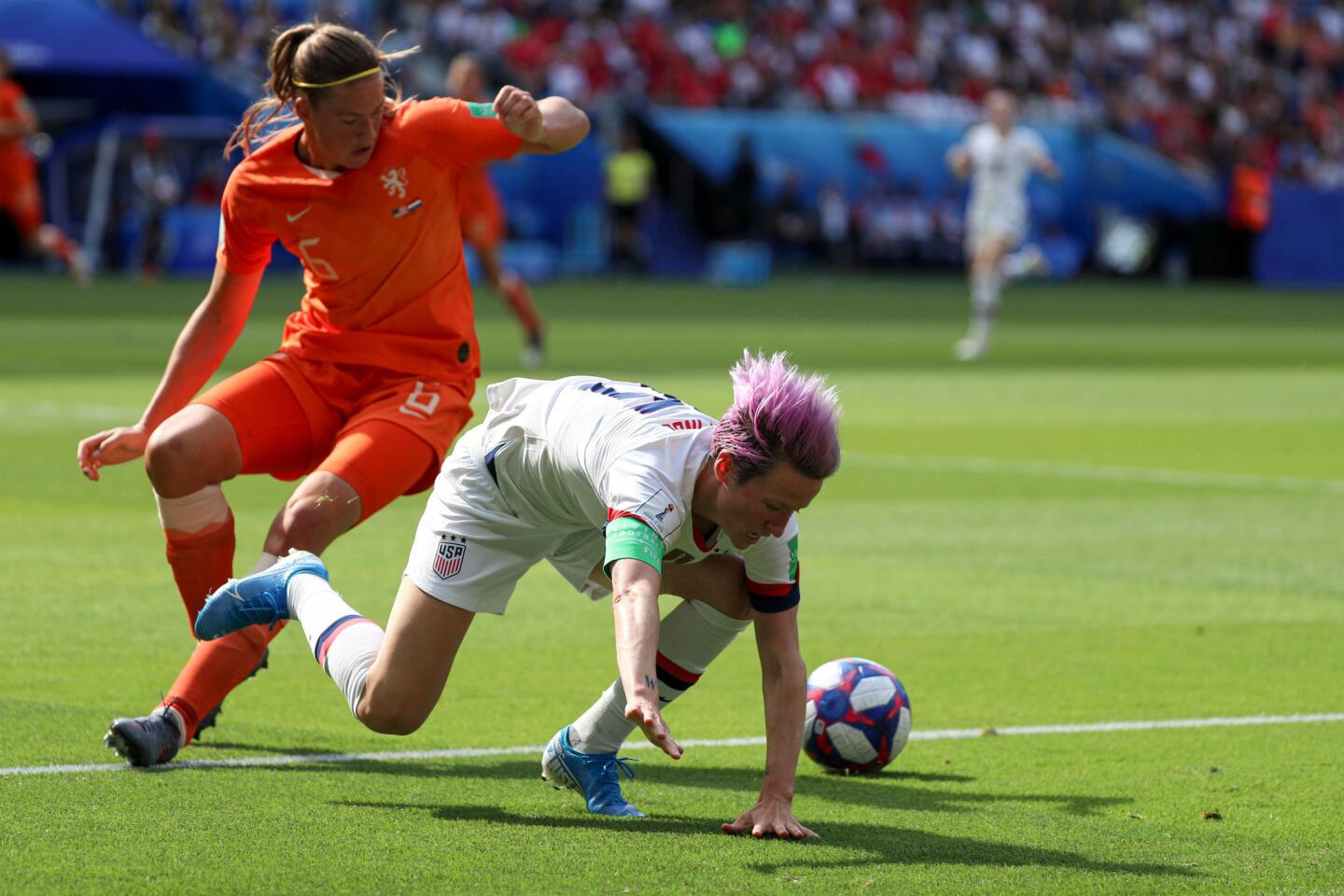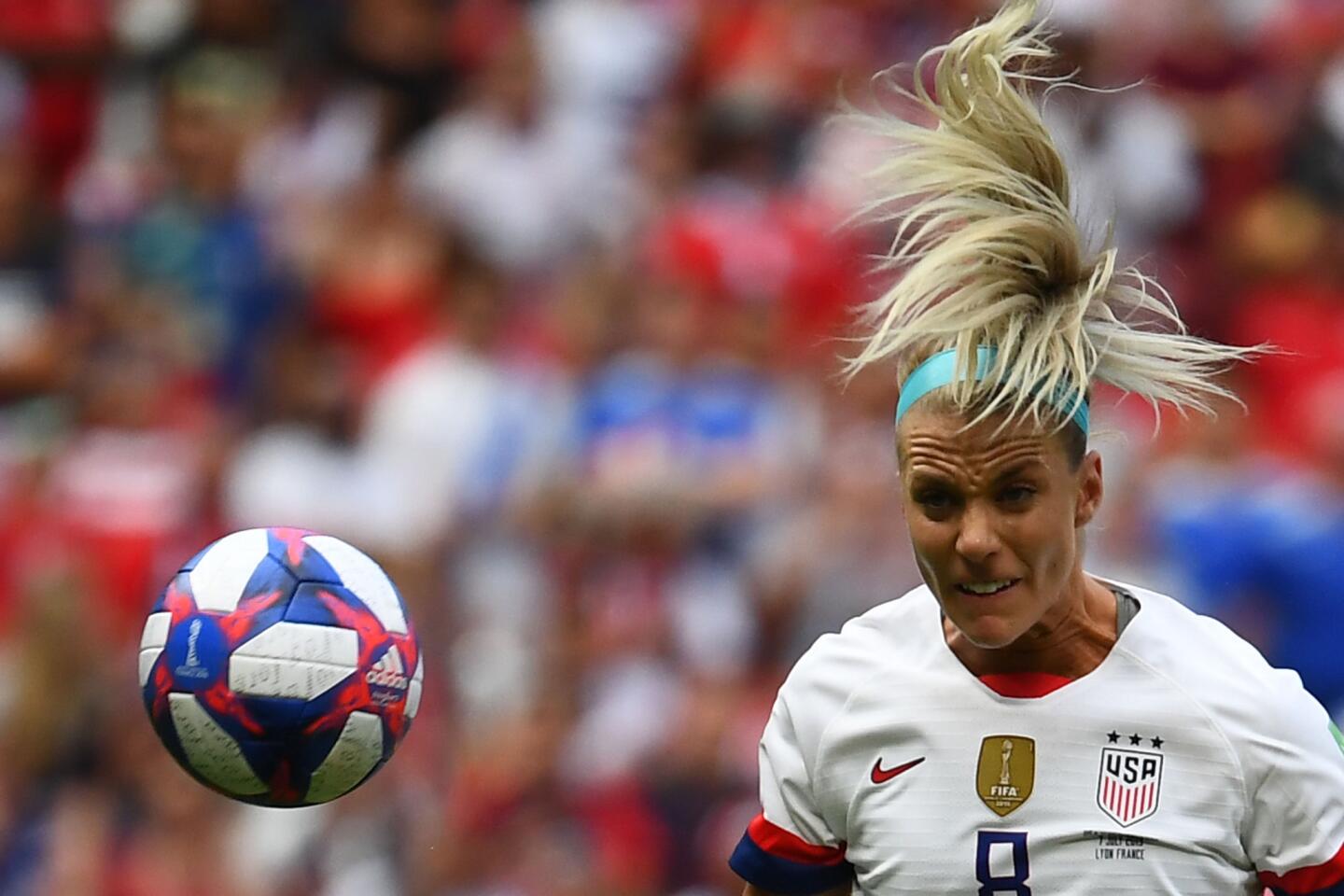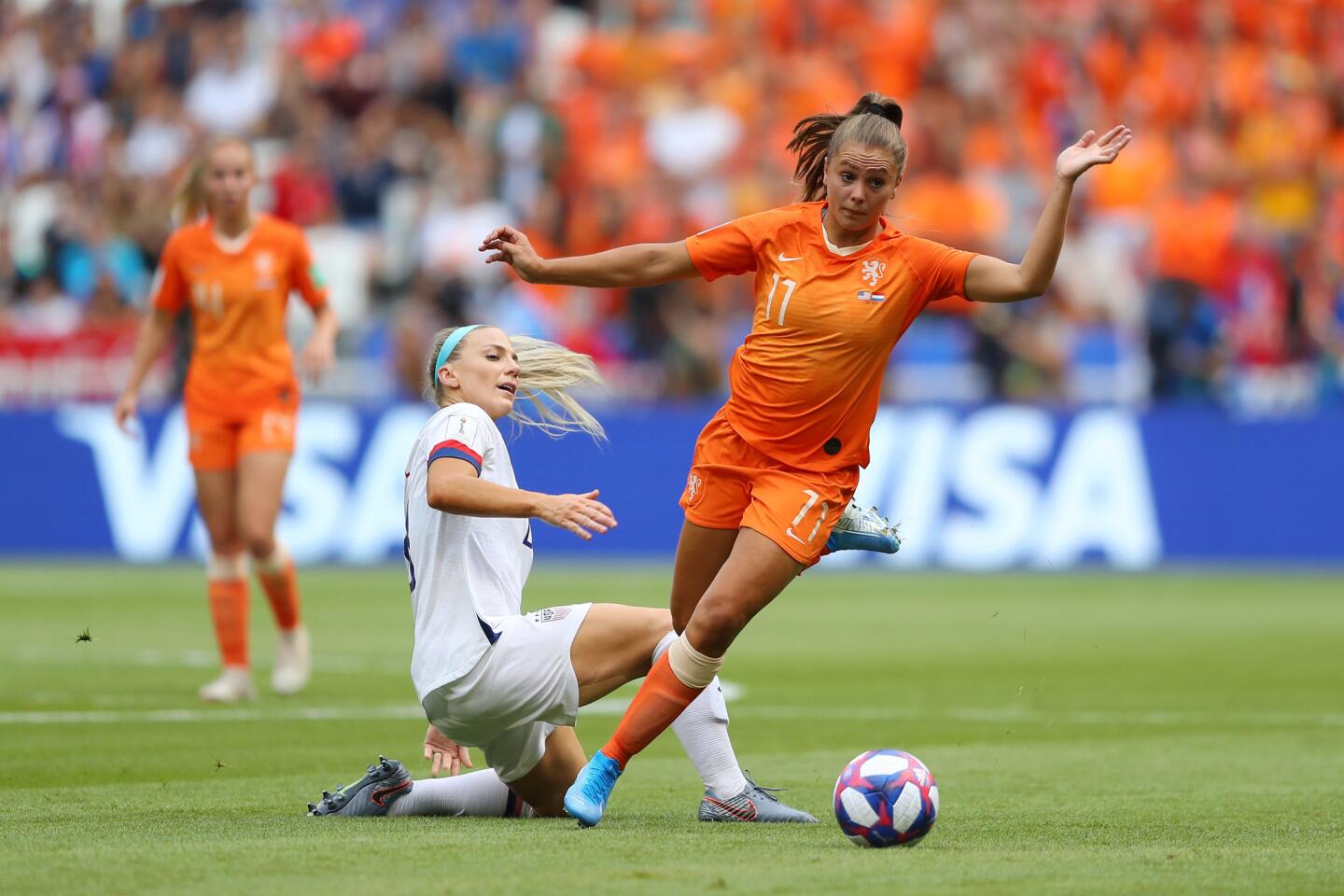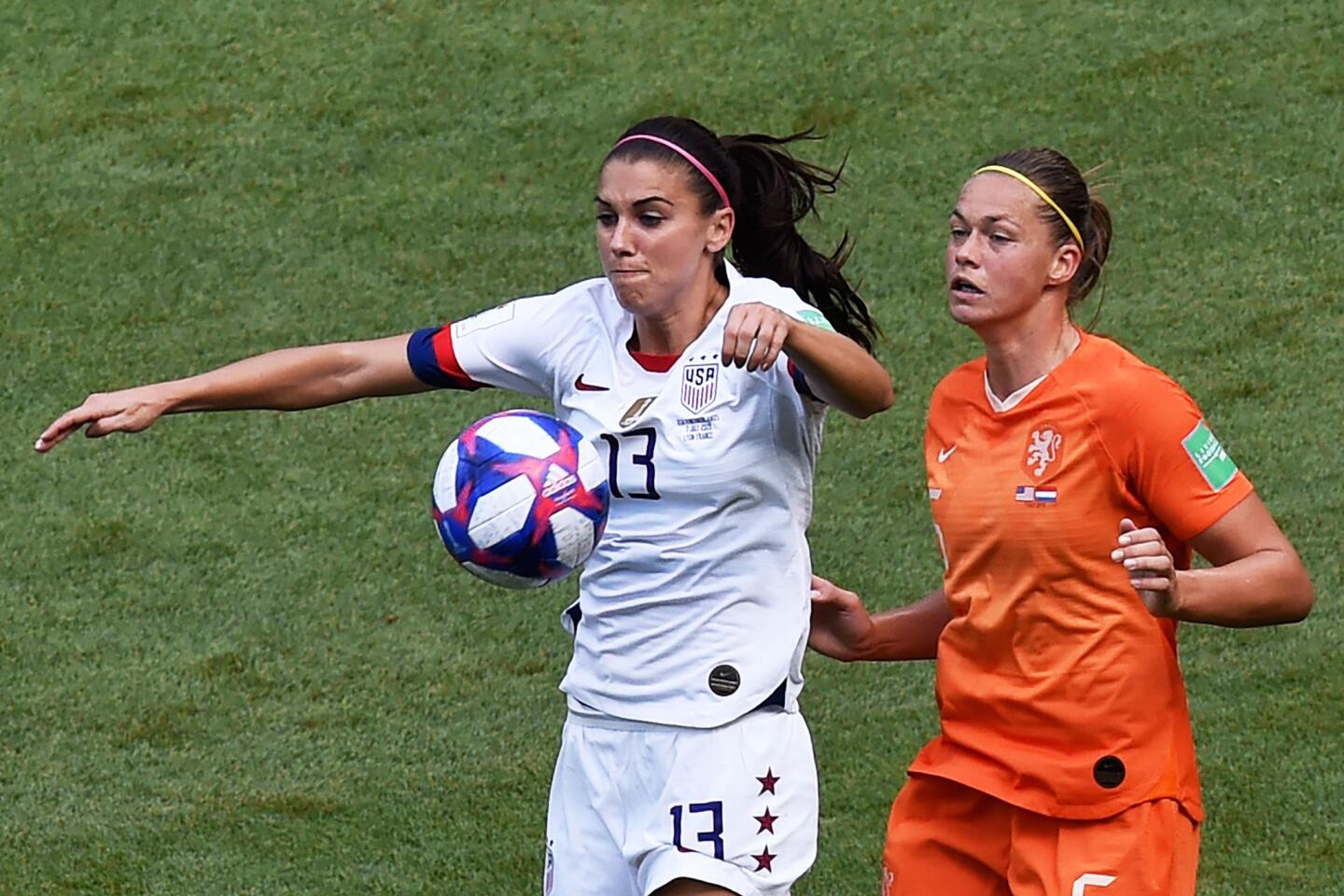U.S. fulfills its promise with emotional triumph in Women’s World Cup
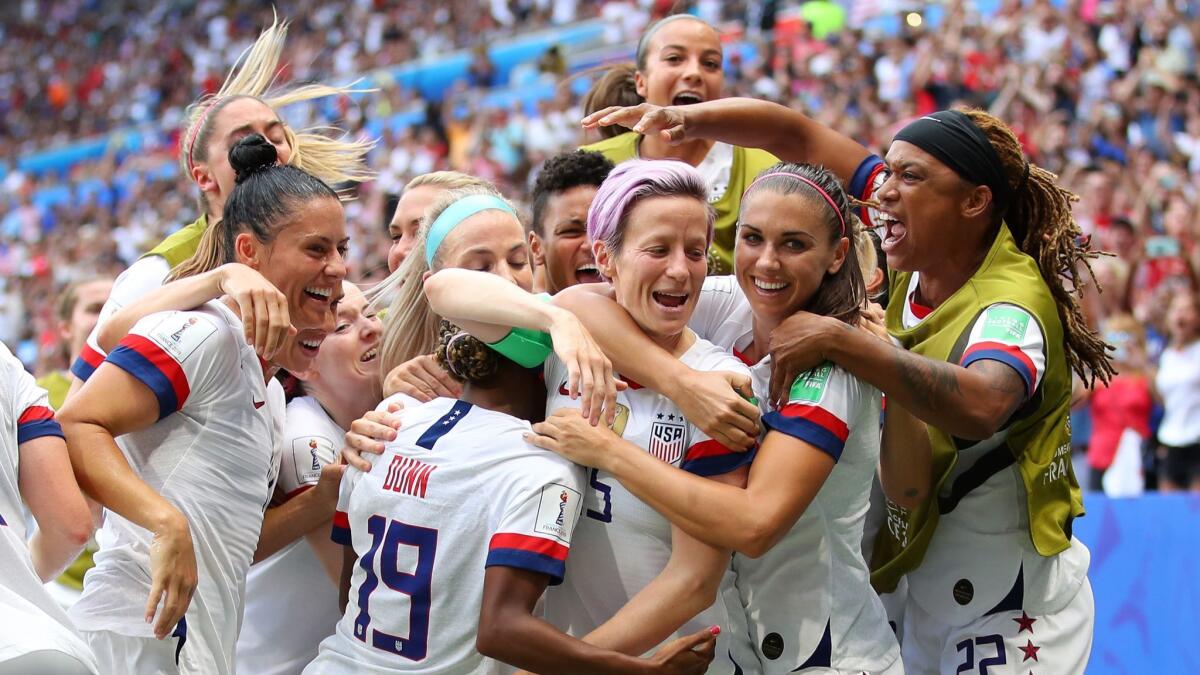
- Share via
Reporting from lyon, france — They ran roughshod over the best field in history, winning seven times in seven tries. They scored a record 26 goals, gave up just three, and in 630 minutes of soccer, they never trailed.
The Americans made their run to a second straight Women’s World Cup title look easy. It was anything but.
So when it ended in a 2-0 victory over a stubborn Netherlands on Sunday before a raucous crowd of 57,900 at Stade Lyon, the U.S. players wrapped one another in flags and hugs and shared cheers and tears.
“I don’t know if I’ve collected my thoughts just yet. I’m so emotionally exhausted,” said Alex Morgan, the co-captain who finished with six goals in this World Cup.
The scores Sunday came from Megan Rapinoe, who was named the tournament MVP, on a penalty kick in the 61st minute and from World Cup newcomer Rose Lavelle, who sealed the Americans’ fourth world championship in the 69th minute.
“The whole experience hasn’t really hit me yet,” Lavelle said. “It’s so surreal now.”
Especially given the long, circuitous and difficult route the U.S. took to get here.
A year after winning her first World Cup as coach, Jill Ellis saw her team eliminated in the quarterfinals of the 2016 Olympics, the earliest exit from a major tournament in the proud program’s history. So she rebuilt the team from top to bottom. Roster, tactics, everything.
“I knew after 2016 we had to deconstruct this and reconstruct it,” Ellis said. “That was the plan. We had to continue to evolve because the game was growing so fast.
“That was hard. But I think that was ultimately the right decision. To get to this point and see the validation in that and the trust in the players that came through that, it speaks for itself.”
She auditioned more than 60 players, 11 of whom made their first Women’s World Cup team this summer. Seven others participated Sunday in their third straight World Cup final.
“It’s been a roller coaster. And I think any player that you ask has gone through their own individual ride where it was high, where they were low,” said defender Becky Sauerbrunn, one of many players knocked to the turf repeatedly Sunday, only to get back and fight. “You just kind of had to ride that roller coaster to make the team.
“And then to win this tournament is kind of a testament to all those paths and all those journeys.”
Sauerbrunn epitomized the grit and determination those journeys produced. After suffering a nasty gash above her right eye in a collision with Dutch midfielder Danielle van de Donk early in the second half, she went to the sideline for repairs and returned wearing a clumsy looking bandage on her head.
She finished the game.
Kelley O’Hara lost her position, then her spot on the team, moving from midfielder to outside back before surgery on her right ankle in October appeared to end her World Cup hopes. Instead, she started six games here, and when the final whistle sounded, teammate Julie Ertz put her arms around O’Hara and whispered congratulations in her ear.
O’Hara broke down in tears — as she did again when recounting the conversation 20 minutes later.
“I got really emotional because I didn’t know if I’d be here or not,” she said through sobs.
“If you would have talked to me even two months ago, I wouldn’t have expected this — for myself especially. Winning a World Cup is probably the hardest thing you can do in football. And maybe in life, I don’t know. And this is the hardest path we’ve had to take to win a major tournament.”
The Americans made history on the way, matching Germany as the only team to win back-to-back Women’s World Cups and making Ellis just the second coach to win consecutive world championships after Vittorio Pozzo, who guided Italy to men’s World Cup titles in 1934 and 1938.
Sunday’s victory also extended the Americans’ World Cup unbeaten streak to 17 games, dating to 2011, and their winning streak to 12. Both are records, as is Ellis’ personnel unbeaten streak of 14 matches.
But the final step was the most difficult.
The Netherlands frustrated the U.S. in the first half, dropping numbers behind the ball and forcing the Americans to send long balls over the top. The Americans finally got a break early in the second half when an attempted cross from Ali Krieger was deflected toward Morgan. Dutch defender Stefanie van der Gragt rushed over to challenge for the ball, sticking her right leg high in the air, but her foot hit Morgan’s right arm instead of the ball and, after consulting a video replay, French referee Stephanie Frappart awarded a penalty kick.
Rapinoe calmly slotted it by Dutch keeper Sari van Veenendaal, who had an otherwise brilliant game, making eight saves and deservedly winning honors as the tournament’s top goalie.
Lavelle doubled the lead with her third goal of the World Cup eight minutes later, taking a short pass from Sam Mewis and, with nothing but open space in front of her, charging to the top of the penalty area before pulling up and driving a low, left-footed shot into the bottom-right corner.
Sign up for our weekly soccer newsletter »
Asked whether the move was planned or instinct, Lavelle shrugged.
“I don’t know. I like my left foot, man,” she replied.
Less than a half-hour later, the long, difficult journey that began four years ago ended right where it began: on the top of the medal platform at the World Cup. Except that the journey was much harder the second time around.
“The level overall around the world is growing exponentially every year. So yeah, this is incredibly difficult,” Ellis said. “The teams we had to come through were some of the best teams in the world. So in terms of the path and the level, this was pretty challenging.”
And ultimately, successful.
[email protected] | Twitter: @kbaxter11

